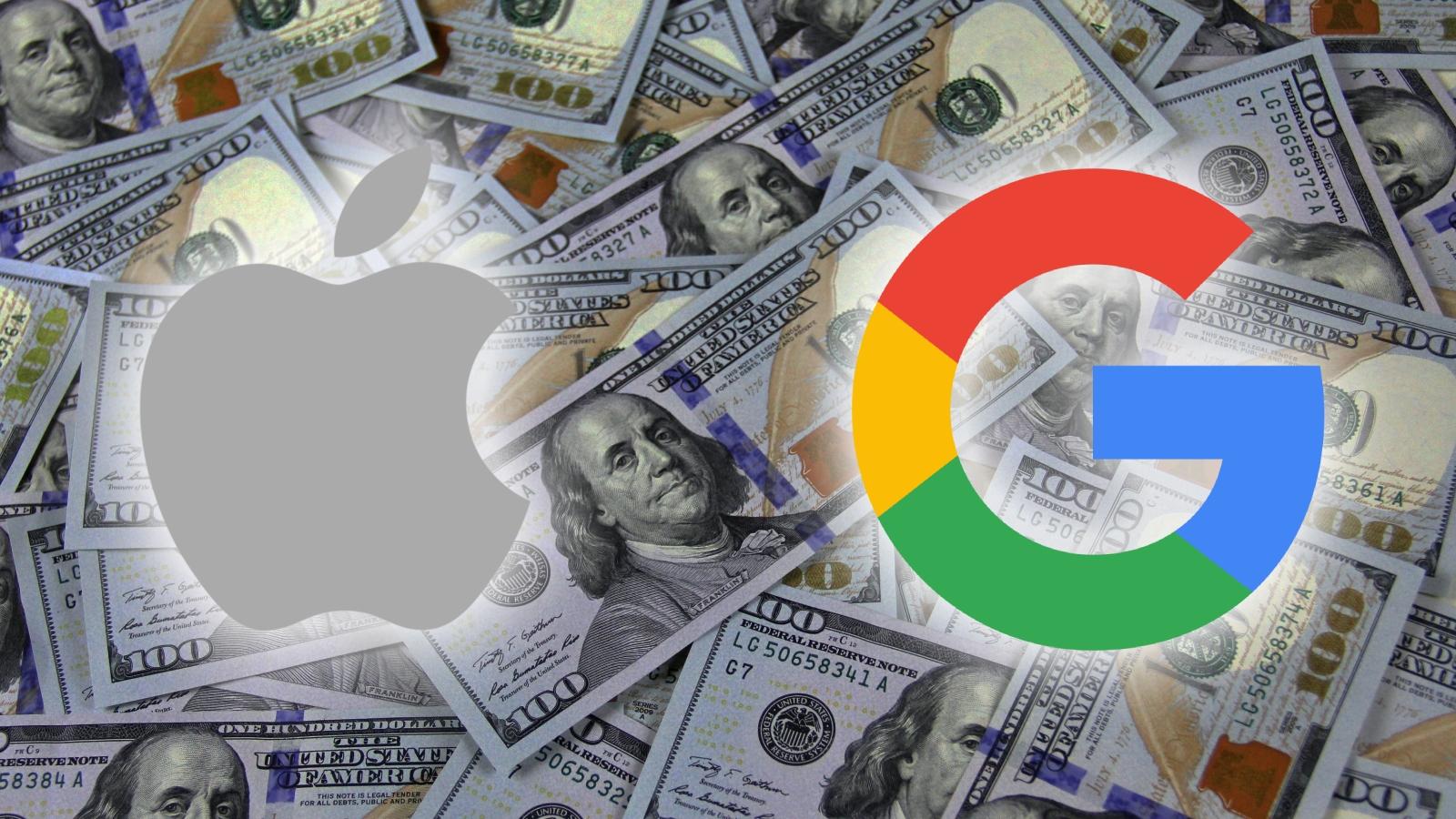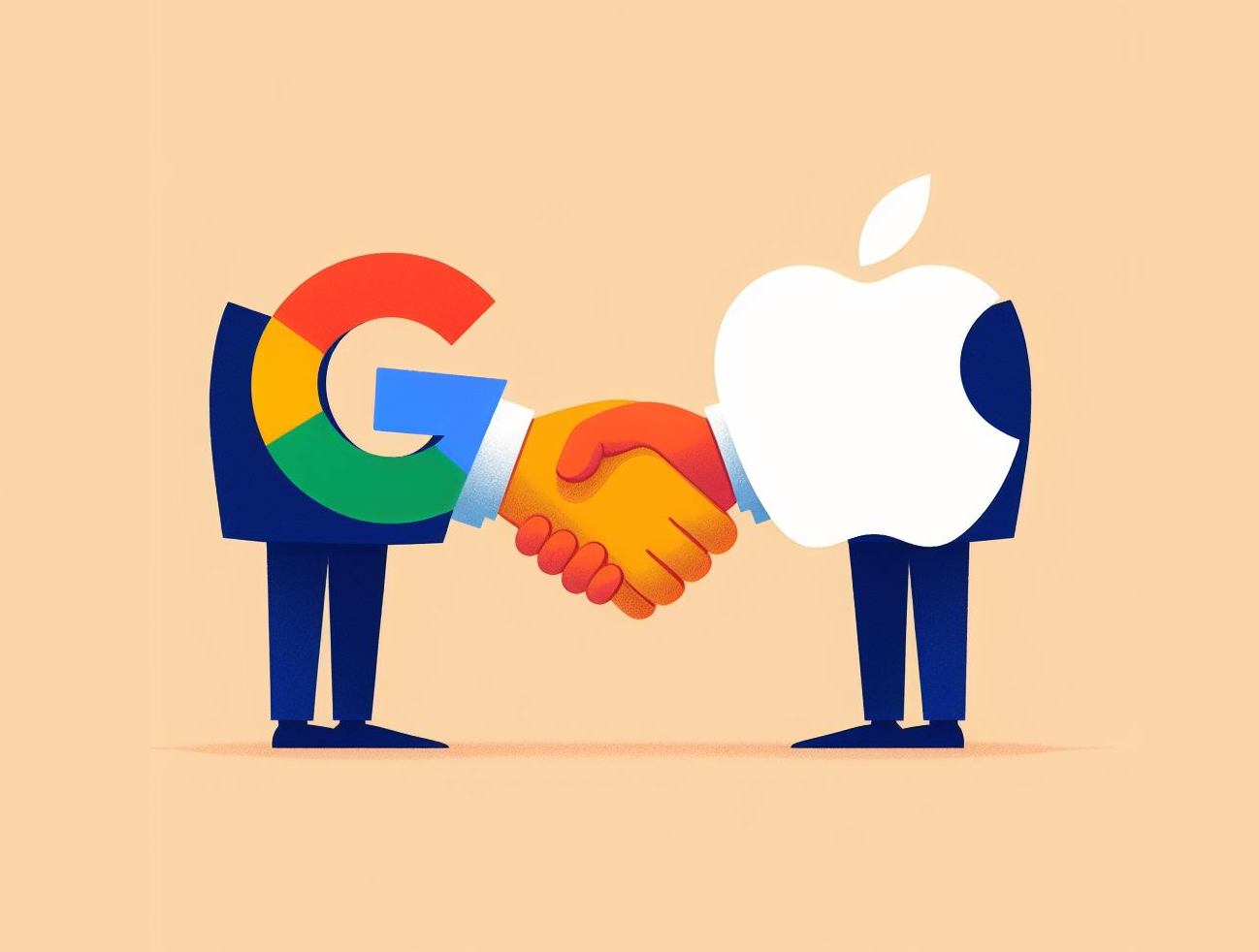Closed Door Deal Revealed! Google Pays Apple $18 Billion To Remain The Default Search Engine On iPhone
Closed door deal revealed where Google pays around $18 Billion to Apple in order to remain the default search engine on iPhone.

Closed Door Deal Revealed! Google Pays Apple $18 Billion To Remain The Default Search Engine On iPhone
Our digital experiences are frequently shaped by behind-the-scenes transactions in the realm of IT giants. One such massive agreement came into limelight most recently when the exact numbers underlying Google and Apple’s long-running partnership have been made public. Although consumers have long taken Google’s position as the iPhone’s default search engine for granted, the intricate financial workings of this relationship have remained a mystery – until now.
The $18 Billion Deal: A Closer Look
Although there have been years of murmurs as well as conjecture, The New York Times has revealed the staggering figure that Google pays Apple each year—a whooping $18 billion—to keep its place as the default search engine on Safari for iPhones, iPads, as well as Macs. This information clears up any lingering questions about the relationship and demonstrates the substantial amount of funds Google spends to guarantee its number one position on Apple products.
Anti-trust Trial Unveils Secrets
These numbers were made public during Google and the US government’s ongoing anti-trust trial. It is alleged that Google engages in anti-competitive behaviour by making agreements with companies like Apple and others to maintain Google Search as the default search engine. The trial has additionally revealed Google’s attempts to hold onto its hegemony, which includes attempts to fight Apple’s Spotlight feature by incorporating a function similar to it inside Chrome.

Apple’s Dilemma: To Search or Not to Search
John Giannandrea, a former Google executive who currently manages AI/ML at Apple, disclosed that the company had been thinking about creating its own search engine. This concept was postponed, nevertheless, due to reservations about competing with Google as well as endangering the prevailing agreement. A further quandary brought to the forefront by Microsoft’s Satya Nadella is the possible disruption that Google would bring if the collaboration were to come to an end. Google might utilize its widely used programs, such as YouTube, Maps, as well as Gmail, to advertise Chrome and draw people away from Safari.
The Battle Continues
Google’s case revolves around the calibre of its search engine as its lawyers prepare for their defence in the current trial. In the opinion of Google, users can freely move between the various search engines with ease. However, the significant yearly payment of $18 billion highlights the extent to which Google goes in order to keep its default position on Apple devices and presents an entirely distinct scenario.
In a world where tech companies fight for supremacy as well as control, this disclosure provides an unusual peek into the complex financial systems that support our interactions via the internet. The tech sector is keeping a careful eye on the trial as it progresses, wondering how it might affect search engine competitiveness going ahead.
The Hidden Costs of Convenience – Examining Google and Apple’s Billion-Dollar Deal
Convenience in the digital era frequently has a cost, and in the case of Google as well as Apple’s long-standing partnership, this cost is an astounding $18 billion yearly. Many people are doubting the real purpose of our online experiences in light of the most recent revelation regarding Google’s payments to maintain its position as the default search engine on Apple devices’ Safari browser. Although smooth browsing as well as seamless integration have come to be associated with Apple devices, there are hidden costs associated with this ease that go well beyond financial ones.

The Illusion of Choice
Having a default search engine might not seem like a big deal at first because consumers can just switch to their chosen search engine, right? Sure, in theory. However, the truth is considerably more nuanced. Defaults matter. They shape our routines as well as impact our decisions. Users are less inclined to look for alternatives when a search engine is easily incorporated into the operating system of the device they are using. Healthy competition is stifled by the absence of exploration, which restricts innovation as well as diversity in the search engine sector.
Monopoly in Disguise
Even if Google and Apple’s relationship seems to be advantageous to both parties, it raises questions regarding the probable concentration of power in the information technology industry. The fact that Google is ready to spend billions shows how much importance it placed on retaining its dominance. As a result, there are less prospects for smaller, more creative companies to enter the market as a result of this monopolistic dominance over search engines. In its basic form, users benefit from the ease of a default search engine, but they also unintentionally support the monopoly of a large tech company.
Privacy Concerns and Data Monetization
Significant privacy concerns are raised by this relationship in addition to the economic ones. Concerns concerning the scope of our online privacy are raised by Google’s capacity to collect data from millions of Apple users. Google has unparalleled access to user behaviour, search trends, and user preferences just like the default search engine. Users are placed in a vulnerable situation where their every online movement is capable of being tracked as well as studied since this data, which is frequently exploited for targeted advertising, blurs the boundaries between personalization and intrusion.
The Need for Transparency and Choice
In light of these findings, it is critical that technology businesses promote transparency as well as offer users with genuine options. While defaults can help to improve the experience of users, they ought not to come at the expense of hindering competition or jeopardizing the confidentiality of users. Consumers have a right to be informed about the scope of these collaborations as well as their repercussions. Furthermore, platforms must actively promote different options, enabling users to check out as well as select search engines on the basis of merit as opposed to default settings.
The collaboration between Google and Apple is a great example of the strength of teamwork, but it additionally serves as a sobering reminder of the hidden intricacies that exist within our digital lives. As customers, we have a responsibility to protect our digital privacy, promote fair competition, as well as demand transparency. We can only successfully navigate the complicated network of defaults by being aware of them as well as making wise decisions, which will keep our online experiences safe and seamless.

Navigating the Nexus of Convenience, Competition, and Choice
Following the disclosure of the enormous financial transactions between Google and Apple, the digital world we live in seems to be both seamless as well as complex—convenient yet complicated. As our previous fragments have shown, the complex interplay between these tech companies highlights how diverse our online experiences are.
The working relationship, on the one hand, underlines the irresistible appeal of ease. By streamlining our interactions, defaults help make technology easier to use as well as accessible. But this level of ease comes at a heavy price, not just in terms of monetary value but also in terms of privacy invasion, competitiveness in the market, and the potential for innovation stifling.
In addition to being a narrative of dealings with money, Google’s tale of paying billions of dollars to keep its default position on Apple devices is also an account of choice—or rather, the illusion of choice. In their pursuit of seamless experiences, users frequently fail to see the subtleties that are hidden beneath default settings. Defaults, which were originally intended to make decision-making easier, are now subtle influencers that shape our online behaviours while decreasing the range of alternatives.
In addition, this arrangement brings up important issues around how data is used as well as privacy. The unstated deal implied by Google’s smooth integration as the default search engine involves a significant amount of personal data in exchange for effortless browsing. The distinction between invasion and personalization becomes hazier, necessitating a reassessment of the ways in which our digital lives are monitored as well as monetized.
Being cautious becomes essential in this complex network of choice, competitiveness, as well as comfort. We need to be aware of the forces influencing what we experience online as users. It is imperative that tech businesses be transparent; it is not merely a request, but a necessity. We must be aware of the consequences of default settings and take steps to look for alternatives. Only in an environment where options are freely given as well as users are empowered to make selections based on information rather than predetermined defaults can true choice prevail.
Let us be cautious users moving forward, mindful of the nuances that control our online experiences. Above all, let us fight for transparency, healthy competition, as well as the freedom to make our own decisions. Our options in this digital age need to be as extensive as well as diverse as the internet itself, free from monopolistic forces or covert alliances. Then and only then will we be able to fully realize the potential of the world of technology while defending our autonomy to use it as we deem fit.







